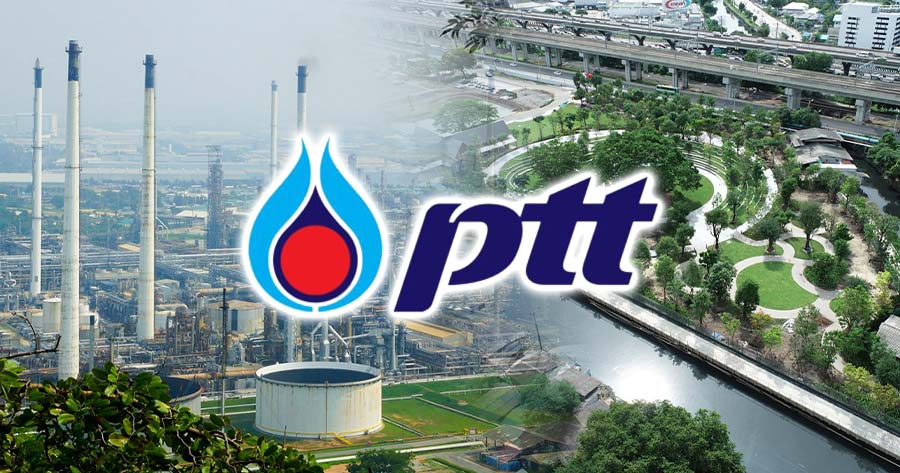PTT Public Company Limited (SET: PTT), Thailand’s largest energy conglomerate, posted a 21.2% year-on-year (YoY) increase in net profit for the third quarter of 2025 (3Q25), reaching THB 19,784 million compared with THB 16,324 million in 3Q24. Earnings per share (EPS) rose 21.1% to THB 0.69.
| Quarter | 3Q25 | 3Q24 |
| Net Profit (Loss) Million Baht |
19,783.36 | 16,323.62 |
| Earning Per Share (Baht) |
0.6900 | 0.5700 |
| % Change | 21.19 | |
| 9 Months | 9M25 | 9M24 |
| Net Profit (Loss) Million Baht |
64,631.73 | 80,760.51 |
| Earning Per Share (Baht) | 2.26 | 2.83 |
| % Change | -19.97 | |
The strong profit rebound came despite a 15.1% YoY drop in consolidated sales revenue to THB 646,689 million, down from THB 761,858 million, reflecting lower oil prices and reduced gas sales.
Profitability was underpinned by both improved operating performance and favorable one-off items. EBITDA surged 24.5% to THB 85,769 million, driven mainly by the Petrochemical and Refining segment. The refining business saw a dramatic turnaround, supported by a stock gain adjusted to Net Realizable Value (NRV) of around THB 1,700 million, a sharp reversal from a THB 20,000 million NRV loss in 3Q24.
The revenue contraction reflected lower average selling prices across PTT’s businesses, in line with the 10.5% drop in the Dubai crude oil price to US$70.1 per barrel. The Gas Business saw revenue fall 22.7% YoY, hit by lower sales volumes and declining prices under the Pool Gas formula as competition from new LNG importers increased.
PTT also benefited from non-recurring gains totaling about THB 900 million in 3Q25, compared to a loss of approximately THB 9,500 million in 3Q24, largely from PTTAC impairment. This THB 10.4 billion swing was a key driver of the overall profit recovery.
However, foreign exchange gains plunged 76.4% YoY to THB 6,258 million, as the Thai baht’s appreciation moderated compared with the prior year.
Meanwhile, the Oil and Retail Business delivered strong underlying growth, with EBITDA more than doubling, supported by higher gross margins for diesel and gasoline and continued expansion of the Non-Oil segment.





